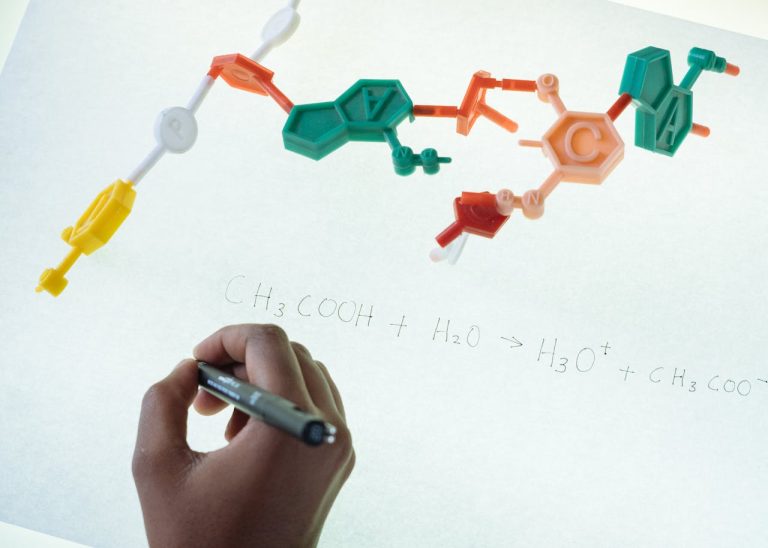Hello, fellow IB enthusiasts! As a seasoned IB tutor, I’m thrilled to share some essential writing insights and Chemistry IA topics. Choosing the right theme for research, whether you’re tackling Chemistry HL or SL Level, can significantly influence your IA’s success. Remember, the key is to pick a topic that meets IB criteria and sparks your curiosity.
IB Chemistry IA: All You Need to Know
The IB Chemistry Internal Assessment (IA) is a crucial component of the International IB DP Chemistry curriculum. The research project accounts for 20% of students’ final grades in Higher Level (HL) and Standard Level (SL) courses. The IA allows students to demonstrate their practical and investigative skills in Chemistry through personal exploration.
A significant part of writing Chemistry IA involves experimental work. Students design and conduct experiments, collect and analyze data, and draw conclusions based on their findings. This hands-on experience is invaluable in understanding the practical aspects of chemistry.
IB Chemistry IA encourages scientific inquiry and creativity. Students are expected to formulate a focused research question, develop a hypothesis, and make experiments. Students must apply critical thinking skills to analyze the results of their experiments, discuss potential errors, and evaluate the reliability and validity of their findings.
The IA culminates in a structured write-up with a strict word count, typically 6-12 pages long. This report should include an introduction to the topic, a detailed description of the methodology, a presentation, data analysis, conclusions, and an evaluation of the work.
The IA is assessed against specific criteria that include personal engagement, exploration, analysis, evaluation, and communication. These criteria assess students’ ability to conduct scientific research and communicate their findings effectively. By the way, if you want to get a perfect grade, I recommend you read the article about common mistakes in IA writing.
So, the IB Chemistry IA is a significant and integral part of the IB Chemistry course, providing students with a unique opportunity to engage in independent research and apply their knowledge and skills in a real-world context.
Chemistry IA Topics and Research Questions
The choice between HL and SL Chemistry should be based on a student’s interest in the subject, future academic and career plans, and readiness to handle the course’s demands. HL is ideal for students with a strong interest in chemistry and wish to pursue it or related fields in higher education. At the same time, SL is suitable for students who want a solid foundation in chemistry to support their studies in other areas.
If you want to get a perfect grade on your IB Chemistry IA, you need to read this article to grasp the rubric well.

Standard Level (SL) Chemistry IA Topics
SL students cover the core topics but with less depth compared to HL. The focus is on fundamental concepts and principles of Chemistry:
- The Effect of Temperature on Enzyme Activity. How does temperature variation affect the rate of catalysis of hydrogen peroxide by liver catalase?
- Vitamin C Content in Various Fruit Juices. How does the vitamin C content vary in fresh vs. packaged fruit juices?
- The Efficiency of Antacids. Which brand of antacid is most effective in neutralizing stomach acid?
- Electrolysis of Aqueous Solutions. How does the concentration of salt solution affect the amount of gas produced in electrolysis?
- Rate of Reaction with Surface Area. How does the magnesium ribbon’s surface area affect its reaction rate with hydrochloric acid?
- Hardness of Water in Different Sources. How does tap water’s hardness compare to bottled and rainwater?
- The concentration of Ethanol in Different Beverages. What is the ethanol concentration in various commercial alcoholic beverages?
- pH Levels in Soil. How do pH levels vary in different types of soil?
- Carbon Dioxide Absorption in Different Types of Plants. Which type of plant absorbs the most carbon dioxide under identical conditions?
- Effects of Temperature on Solubility of a Salt. How does temperature affect the solubility of potassium nitrate in water?
- Boiling Point of Different Solutions. How does the addition of salt affect the boiling point of water?
- Concentration of Ions in Tap Water. What is the concentration of calcium ions in local tap water?
- Effect of Light on Photosynthesis. How does varying light intensity affect the rate of photosynthesis in aquatic plants?
- Oxidation States of Manganese in Various Chemicals. What are the oxidation states of manganese in different manganese-containing compounds?
- The Effectiveness of Different Metals as Catalysts. Which metal is the most effective catalyst in the decomposition of hydrogen peroxide?
- Caffeine Content in Different Types of Coffee. How does the caffeine content vary among different brands of coffee?
- Effectiveness of Different Water Purification Methods. Which household water purification method is most effective in removing impurities?
- Acidity in Natural Waters. How does the pH level vary in natural water sources in a specific area?
- Sugar Content in Soft Drinks. What is the variation in sugar content across different brands of soft drinks?
- Stability of Vitamin C in Stored Orange Juice. How does storage time affect the vitamin C content in orange juice?
- Extraction of Natural Dyes from Plants. How can natural dyes be extracted from different plants, and what are their staining properties?
- Rate of Fermentation in Various Fruits. How does the type of fruit affect the rate of fermentation?
- Dissolved Oxygen in Water Samples. How does the level of dissolved oxygen change in water samples from different sources?
- Effect of Metals on Plant Growth. How do certain metals in soil affect the growth rate of a specific type of plant?
- Insulation Properties of Different Materials. Which material is the most effective insulator for maintaining the temperature of hot water?
SL students can also have practical laboratory requirements, but the scope and depth of these are less than those in HL.
Buy IB IA with Full Confidentiality!
Grab your IB IA with full privacy guaranteed.
Our no-leak policy keeps your details 100% secure.

Higher Level (HL) Chemistry IA Topics
HL students also study additional topics and subtopics not covered in SL. These can include further organic chemistry, additional physical chemistry topics, and more advanced options:
- Kinetics of a Reaction. How does the concentration of reactants affect the rate of a chosen reaction?
- Thermodynamics of Chemical Reactions. What is the enthalpy change for the reaction of magnesium with hydrochloric acid?
- Spectroscopic Analysis of Chemical Compounds. How can UV-visible spectroscopy be used to determine the concentration of a particular dye in a solution?
- Organic Synthesis and Analysis. How can aspirin be synthesized, and its purity assessed using chromatography?
- Environmental Impact of Acid Rain. How does acid rain affect the rate of corrosion of different metals?
- Synthesis and Characterization of Soap. How do different oils affect the properties and effectiveness of homemade soap?
- Buffer Capacity of Different Solutions. Which commercial buffer solution has the highest buffer capacity?
- Complexometric Titration. How can EDTA titration be used to determine water hardness?
- Electrochemical Cells. How does the concentration of electrolyte affect the voltage of a homemade cell?
- Quantitative Analysis of Vitamin B in Food. What is the concentration of vitamin B in various food samples?
- NMR Spectroscopy in Organic Chemistry. How can NMR spectroscopy be used to determine the structure of an unknown organic compound?
- Chromatographic Separation of Mixtures. How effective is chromatography in separating different pigments in plants?
- Catalytic Activity of Transition Metals. How does the choice of transition metal catalyst affect the rate of a chemical reaction?
- Synthesis and Analysis of Coordination Compounds. What are the properties of a coordination compound synthesized in the laboratory?
- Investigation of Colloids and Suspensions. How do various factors affect the stability of colloidal suspensions?
- Analysis of Food Preservatives. What is the effectiveness of different preservatives in preventing microbial growth in food?
- Chemical Analysis of Antibiotic Residues. How can the presence of antibiotic residues in meat products be chemically analyzed?
- Synthesis of Biodiesel. How can biodiesel be synthesized from vegetable oil, and what are its properties?
- Quantitative Analysis of Air Pollutants. What are the concentrations of specific pollutants in the air in different urban areas?
- Electrophoresis in Protein Analysis. How can electrophoresis be used to analyze the protein content in different food items?
- Heavy Metal Contamination in Soil. What levels of heavy metal contamination exist in local agricultural soils?
- Polymer Synthesis and Characterization. How can a specific polymer be synthesized, and what are its physical properties?
- Chemical Analysis of Antioxidants in Food. How can the antioxidant capacity of different fruits be quantified?
- Effect of pH on Enzymatic Activity. How does pH affect the activity of a specific enzyme?
- Corrosion Rates of Different Metals. How do various environmental conditions affect the corrosion rates of different metals?
HL students are expected to spend more time in the lab conducting experiments, including a prescribed list of practicals. It leads to a deeper understanding of experimental techniques and data analysis.
Experimental Investigation vs. Theoretical Research Chemistry IA Topics
In the context of academic research, especially within the IB Chemistry Internal Assessment, students often choose between experimental investigation and theoretical research. Experimental investigations are hands-on and involve active experimentation. Students conduct physical experiments, make observations, and gather data. This method requires setting up a laboratory experiment, using various chemicals, materials, and equipment to test a hypothesis or investigate a scientific concept. Data collection involves direct measurement and observation.
The theoretical research option involves working with existing theories and information. It’s more about exploring concepts, analyzing pre-existing data, or using mathematical models. Students engage in extensive literature review, data analysis, and theoretical modeling. They may use computer simulations or mathematical calculations to test their hypotheses. Such topics require strong background knowledge, advanced analytical skills, and sometimes sophisticated computational resources.
In choosing between experimental and theoretical research, students should consider their strengths, interests, available resources, and the specific requirements and guidelines of the IB Chemistry IA. Both approaches offer valuable learning experiences and can lead to insightful and significant findings in their respective domains.
Conclusion
To wrap up, choosing IA topics is a crucial step in your IB path. Whether you’re an HL or an SL student, many fascinating ideas exist. So, choose a topic that resonates with you, and remember, the world of Chemistry is full of wonders waiting to be explored by young minds like yours! Also, if you need help with Internal Assessment, just contact our IB writers at Buy IB IA Service.

Nick Radlinsky
Nick Radlinsky is a passionate educator, marketer, and management expert with over 15 years of experience in the education sector. After graduating from business school in 2016, Nick embarked on a journey to earn his PhD, fueled by his dedication to making education better for students everywhere. His extensive experience, beginning in 2008, has made him a trusted authority in the field.
Nick's groundbreaking article, published in Routledge's "Entrepreneurship in Central and Eastern Europe: Development through Internationalization," showcases his keen insights and commitment to improving the educational landscape. Guided by his motto, "Make education better," Nick's mission is to simplify students' lives and promote efficiency in learning. His innovative ideas and leadership have helped transform countless educational experiences, setting him apart as a true pioneer in his field.




